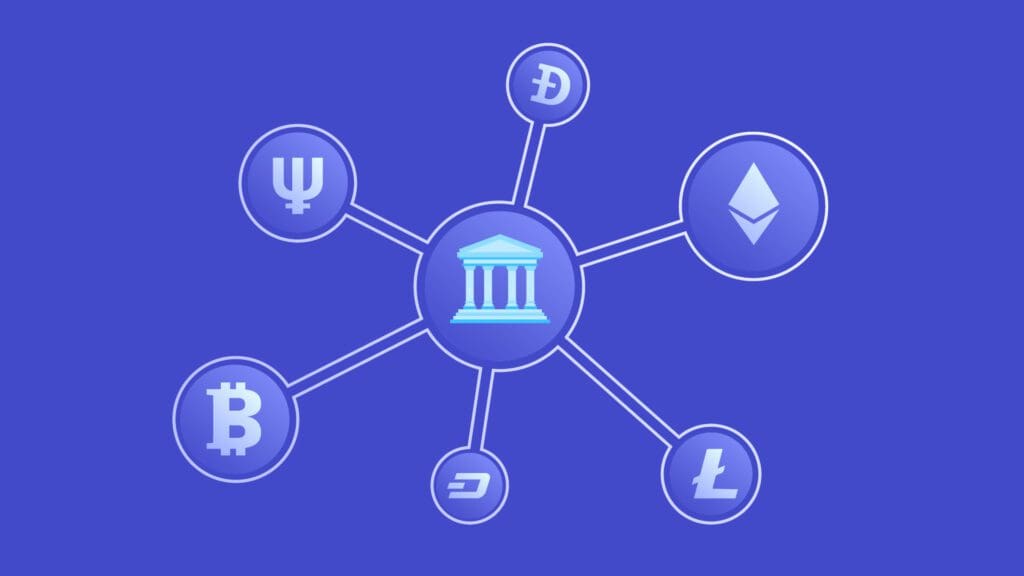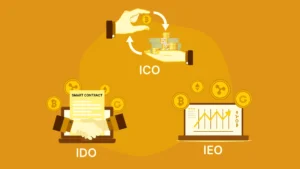
In the world of decentralized exchanges (DEXs), how decisions are made can greatly affect the platform’s success. Delegated governance is a system where token holders (users who own the exchange’s tokens) can vote for representatives who make decisions on their behalf. This approach has several benefits, especially for DEXs. Here’s why delegated governance is a good fit for DEXs and how DEX Software Development Services play a role in it.
What is Delegated Governance?
Delegated governance is a system in which participants in a decentralized network or organization assign their voting rights to trusted representatives rather than voting on every decision themselves. This model streamlines the decision-making process by allowing those with expertise or a deep understanding of the system to make informed choices on behalf of others. In this setup, token holders can delegate their voting power to others who then act on their behalf, helping to manage complex decisions and protocol changes more efficiently. Delegated governance helps balance the need for broad community involvement with the practicalities of effective management, ensuring that decisions are made by knowledgeable and invested participants.
Benefits of Governance in DEX
Governance in Decentralized Exchanges (DEXs) provides several key advantages that improve the platform’s functionality and user experience. It promotes decentralized decision-making, ensuring that no single entity controls the platform, which helps maintain fairness and prevents power abuse. Governance also boosts community engagement by giving users a voice in important decisions, such as protocol upgrades and changes, fostering a sense of ownership. Moreover, it adds adaptability, allowing the DEX to respond to market shifts and user needs.
The transparency of governance processes, recorded on the blockchain, ensures accountability. Many governance models also incentivize participation through rewards or governance tokens, encouraging user involvement. DEX Governance Proposals play a crucial role in shaping decision-making and protocol upgrades. In Decentralized Exchange Development, incorporating governance features enhances the platform’s evolution and long-term stability, driving both user participation and innovation.
Types of Delegated Governance
There are several types of delegated governance models used in decentralized systems, each with its unique approach to managing decision-making:
-
Liquid Democracy
This model allows token holders to delegate their voting power to representatives for specific issues or proposals. Unlike traditional systems, delegations can be easily adjusted or revoked, giving users flexibility to change their representation based on the topic at hand.
-
Representative Democracy
In this model, token holders elect representatives who make decisions on their behalf. These representatives are chosen for their expertise or leadership within the community, and their role is to vote on proposals and manage governance matters.
-
Staking-Based Governance
Here, users stake their tokens to participate in governance. The amount of tokens staked often determines the level of influence a participant has in decision-making processes. This model aligns the interests of voters with the health and performance of the network.
-
DAO (Decentralized Autonomous Organization)
DAOs use smart contracts to automate governance processes. Token holders vote on proposals, and the outcomes are executed directly by the smart contracts without needing intermediaries. This model ensures that decisions are implemented transparently and efficiently.
-
Council-Based Governance
A small group of elected or appointed individuals, often referred to as a council, is responsible for making decisions and managing the platform. This model combines representative elements with a structured, manageable group for governance.
Best Governance Models for Decentralized Systems
Choosing the Best Governance Model for Decentralized Systems depends on the platform’s specific needs and goals. In Decentralized Exchange Software Development , selecting the right governance model is crucial for ensuring efficiency and fairness. Delegated Proof of Stake (DPoS) is ideal for balancing decentralization with efficiency, allowing token holders to elect delegates for decision-making and transaction validation. Decentralized Autonomous Organizations (DAOs) automate governance using smart contracts, ensuring transparency and reducing intermediaries. Quadratic Voting allows users to express the strength of their preferences, helping balance majority and minority views for more representative decision-making.
Holacracy provides a flexible management structure by distributing decision-making across roles, promoting agility and adaptability in DEX Development. Liquid Democracy blends direct and representative democracy, allowing users to delegate voting power to trusted representatives while retaining the ability to change delegations. Lastly, stake-based governance aligns voting power with the network’s health, where participants stake tokens and are incentivized to act in the system’s best interest. Each model brings unique strengths, making the choice dependent on the platform’s context and objectives.
Layers of Delegated Governance in DEX
Delegated governance in decentralized exchanges (DEXs) typically operates through several structured layers to ensure efficient decision-making and management. These layers include:
-
Token Holder Layer
At the base of delegated governance is the token holder layer. Here, all participants who hold the platform’s governance tokens have the initial say in the system’s decisions. They can either vote directly on proposals or delegate their voting power to trusted representatives. This layer is crucial for involving the broader community in the governance process.
-
Delegate/Representative Layer
This layer consists of the delegates or representatives who are entrusted with the voting power delegated by the token holders. These individuals or entities are responsible for making informed decisions on behalf of the community, based on their expertise or experience. They play a critical role in shaping the direction and policies of the DEX.
-
Proposal Layer
Proposals for changes, upgrades, or other significant decisions are submitted through this layer. Proposals can be put forward by any participant or delegate and are reviewed by the community or governing body. This layer ensures that all potential changes are thoroughly considered before being put to a vote.
-
Voting and Decision Layer
Once proposals are submitted, they proceed to the voting and decision layer. Here, either the entire token holder base or the elected delegates vote on the proposals. This layer determines the outcome of the governance process and decides which proposals will be implemented.
-
Execution Layer
After a proposal is approved, the execution layer handles the implementation of the decision. This may involve updating smart contracts, modifying platform parameters, or executing other necessary actions. The execution layer ensures that approved changes are effectively carried out and integrated into the DEX.
Why Trust Nadcab Labs for DEX Governance Models?
You can trust Nadcab Labs for DEX governance models because they bring a wealth of expertise in blockchain technology and decentralized systems. They offer tailored solutions that align with the specific needs of your DEX, ensuring that governance models are both effective and efficient. Nadcab Labs focuses on integrating best practices and innovative approaches to create robust governance frameworks that promote transparency and fairness.
Their commitment to security and reliability means that governance processes are managed with the highest standards, giving you confidence in the platform’s integrity. Additionally, Nadcab Labs provides ongoing support and updates to adapt to evolving market conditions and community needs, making it a dependable partner for developing and managing your DEX governance models.







